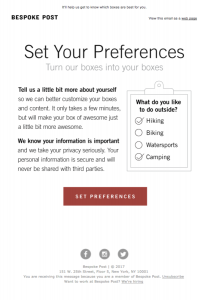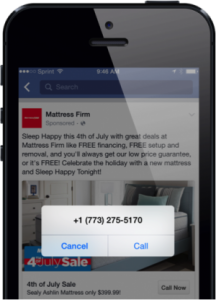If you’ve ever booked a flight, bought a product online or needed some help from customer service, it’s likely you’ve crossed paths and interacted with a chatbot. The use of these automated systems has helped ease quite a few tasks like these for consumers and associates. Could the same be said for industries outside of customer service? Here’s what you need to know about chatbots and the future of recruiting:
Keep Candidates Interested
CareerBuilder’s data found 67% of job seekers have a positive impression of a company if they receive consistent updates throughout the application process. Yet, when asked how long it took an employer to get back to them about their application, 43% of candidates questioned in a recent Workopolis poll said “never.” By using a chatbot during the recruiting process, employers will have the ability to stay in contact with candidates on a regular basis, update them on where they are in the hiring process, and keep their interest throughout, all while saving the recruiters time and the corporation money.
In addition to keeping candidates interested, chatbots also give the opportunity for applicants to ask questions about the job or even the application process itself. Many application processes can be long and grueling. In fact, according to CareerBuilder, 60% of job seekers quit in the middle of filling out online job applications because of their length or complexity. With the presence of a chabot, though, candidates have somewhere to turn when they get to a point that may be too complex or confusing.
Speed Up the Process
Using a chatbot for Q&A and to help candidates through the application process will ultimately produce better quality candidates for the company overall because the most qualified candidate who is likely to have other options will need more questions answered and points clarified throughout the process to help them make a final decision.
Having a chatbot that can do so without interfering with a recruiter’s day will help speed more qualified candidates through the pipeline and as in-demand applicants increase, so will the organization’s overall quality of applicant. Along these same lines, chatbots will have ability to give accurate and quick answers to help speed up the decision-making process for candidates. Which will then reduce follow-up questions.
With 77% of candidates stating they feel job ads should include more information, these benefits chatbots bring to the table are crucial. Add these to the fact that they would be available 24/7 and could potentially answer questions in all sorts of different languages, these automated systems would be just about any recruiter’s to speed up their time to hire and increase the quality of candidates.
Save Money
The use of chatbots is not a new concept to many industries such as customer service and sales. While completely automating sales and customer service is not possible, as is the same with recruiting, incorporating a chatbot into their processes has shown for some major potential annual savings. A study by the BI Intelligence team found that by using chatbots in customer service, the annual savings could result in about $ 23 billion a year.
Using a chatbot in the recruiting process could potentially save corporations money, especially when it comes to employing teams of recruiters to sift through applications as well as making the right hire in the first place. According to a SHRM study from 2016, the average cost per hire for companies is $ 4,129 and the average time it takes to fill a position is 42 days. Using a chatbot’s abilities to talk to multiple candidates at a time and scan thousands of resumes would reduce this time to hire. Additionally, chatbots could potentially help recruiters select the most qualified candidate with better precision, decreasing the chances of wasting time and money on the wrong selection.It won’t be long before chatbots become the norm in the recruiting world. With all the benefits they bring to the table, why not integrate them into your hiring process?
Business & Finance Articles on Business 2 Community(61)





